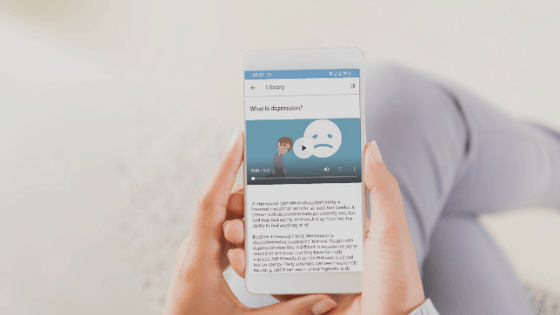Getting started with mHealth technology for mental health can seem like a daunting process even though it has proven to bring many benefits to medical practice such as improving medication adherence, increase patient engagement and improve health outcomes in a cost-efficient way. Therefore, the sooner healthcare providers embrace this technology, the better.
Luckily, mHealth technology does not only offer benefits for patients, but it also solves many of today’s healthcare challenges, since it provides healthcare providers with the scalability to treat more patients with fewer resources.
In spite of the clear benefits, many healthcare providers, have not yet fully embraced mHealth technology due to several reasons:
- Lack of budget
- Uncertainty about choosing the right tool
- Uncertainty about the ease-of-use
- Uncertainty if it will, in fact, make a difference
Luckily, Monsenso is committed to helping healthcare providers overcome these obstacles.
Lack of Budget: A lack of budget may seem like the largest impediment to acquiring digital health tools. However, this type of tool should be considered as a valuable investment, since it enables providers to treat and monitor more patients with fewer resources. Besides, all healthcare professionals may have access to the same patient data even when their main practitioner is not available.
Uncertainty about choosing the right tool: Choosing the right tool may be confusing because the functionality greatly varies among the different suppliers. One thing is certain, providers need to choose an mHealth solution rather than a health app since the later does not allow information-sharing between patients and providers. Other criteria should include looking for a solution that is technically and clinically validated, is well-established in the market, and it holds relevant certifications such as the one given to the medical device companies, CE Mark and other ISO certifications.
Uncertainty about the ease-of-use: UI and UX have evolved considerably during the last few years, therefore the product development team of any serious company offering an mHealth solution, will take into consideration these principles to ensure the product provides a meaningful and relevant experience to users in terms of design, usability and function. It is as simple as booking a product demo or requesting a free trial to ensure that the desired solution is intuitive and easy to use for doctors and patients alike.
Uncertainty if it will, in fact, make a difference: Perhaps, this may seem the hardest obstacle to overcome. Would this thing actually work? Although no one can guaranty if a tool will work for a specific medical practice, there is a precedent that this technology actually works. According to a recent study conducted by McMaster University, online therapy can be more effective than in person. You can also read third-party validations to give you confidence in your choice.

